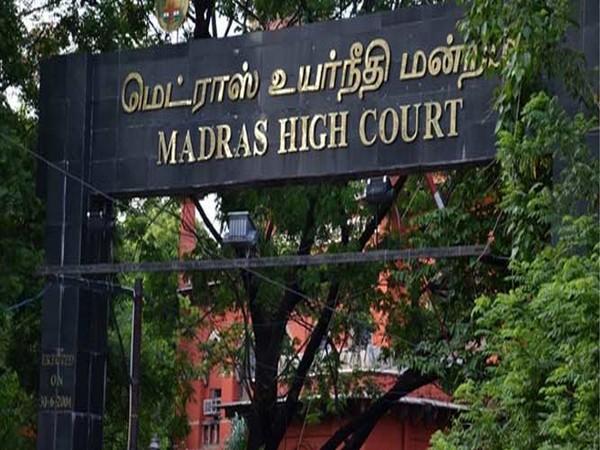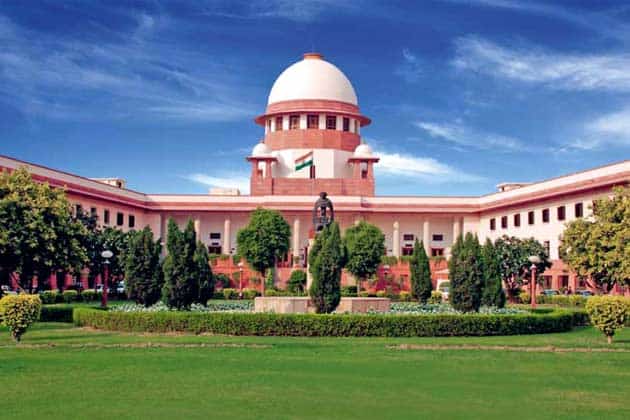Amid the debate and political row over DMK minister Udhayanidhi Stalin’s comments, the Madras High Court has said that Sanatana Dharma is a set of ‘eternal duties’ which can be gathered from multiple sources relating to Hinduism or those practising the Hindu way of life and includes “the duty to the nation, duty to the King, King’s duty to his people, duty to one’s parents and Gurus, care for the poor, and whole lot of other duties”.
Justice N. Seshasayee said in his order on September 15 that the court is conscious of “the very vociferous, and at time noisy debates on pro and anti Sanatana Dharma” and the court could not help pondering over with genuine concern for what is going around.
The court also said that when free speech is exercised in matters pertaining to religion, it is necessary for one to ensure that no one is injured and “free speech cannot be hate speech”.
“Somewhere, an idea appears to have gained ground that Sanadhana Dharma is all about, and only about, promoting casteism and untouchability. Untouchability in a country of equal citizens, cannot be tolerated, and even if it is seen as permitted somewhere within the principles of ‘Sanathana dharma’, it still cannot have a space to stay, since Article 17 of the Constitution has declared that untouchability has been abolished. It is part of the fundamental right,” the court said.
“And, under Art. 51A(a), it is the fundamental duty of every citizen to, ‘abide by the Constitution and respect its ideals and institutions..’. Therefore, untouchability, either within or outside Sanatana Dharma can no longer be Constitutional, though sadly it still exits,” it added.
The court referred to the arguments on behalf of the petitioner Elangovan and said he had submitted with considerable force that nowhere Sanatana Dharma either approves or promotes untouchability, and it only insists the practitioners of Hinduism to treat all equally.
“ ‘As religious practices move with time, some bad or evil practices may un-noticingly creep into it. They are the weeds required to be removed. But why should the crop be chopped?’ – This, in short the essence of the submissions of the learned counsel,” the court noted.
The court was hearing a petition challenging a circular issued by a local government college asking girl students to share their thoughts on the topic ‘Opposition to Sanadhana’ on the birth anniversary of former Tamil Nadu Chief Minister and DMK founder CN Annadurai.
The court disposed of the plea after noting that the circular had already been withdrawn by the college.
“This Court is conscious to the very vociferous, and at time noisy debates on pro and anti Sanathana Dharma. It has also broadly understood Sanathana Dharama as a set of ‘eternal duties’, and that it cannot be traced to one specific literature, but has to be gathered from multiple sources which, either relate to Hinduism, or which those who practice the Hindu way of life, have come to accept,” the court said.
“It includes the duty to the nation, duty to the King, King’s duty to his people, duty to one’s parents and Gurus, care for the poor, and whole lot of other duties. If the topic chosen by the impugned circular is now tested on the plane of these duties, it would then mean that all these duties are liable to be destroyed. Should not a citizen love his country? Is he not under a duty to serve his nation? Should not the parents be cared? With genuine concern for what is going round, this Court could not help pondering over it,” the order said.
The court said it is conscious that every citizen has a fundamental right to free speech under Article 19(1)(a) of the Constitution.
“While right to free speech is inalienable, it is also important to underscore that one is adequately informed, as it adds value to what is spoken. It should not be forgotten that the Constitutional framers have very consciously has not made right to free speech as an absolute right. They have restricted it with Article 19(2),” the order said.
It said Article 25 has granted all citizens the fundamental right to practice any religion.
“Every religion is founded on faith, and faith by nature accommodates irrationality. Therefore, when free speech is exercised in matters pertaining to religion, it is necessary for one to ensure that no one is injured,” the court said.
“In other words free speech cannot be hate speech, as the Hon’ble Supreme Court has cautioned. The users of free speech must not ignore to factor these aspects while exercising their right. If this is ignored, the course of any debate will get derailed, and the objective behind it will lose significance,” it added.
The court said it would be appreciable, if free speech encourages dispassionate, and healthy public debates, and helps society to move forward.
“How free speech is seen exercised these days? If the free speech made through the social media is taken as a basis, anyone who has little to do with science, or rocket, or space, will be lecturing on rocket science. While this is also accommodated within the right to free speech, yet it may he helpful to gain some attention, and may not take it beyond.
“It would be appreciable, if free speech encourages dispassionate, and healthy public debates, and help the society to move forward, along the lines which the Constitution envisages. At the end of the day, every citizen traces his existence to the Constitution, and hence it is his duty to abide by its values, its ethos, and to hold an uncompromising abidance to its spirits. This should not be forgotten. Hope it prevails,” the order said. (ANI)
Read More: https://lokmarg.com/


